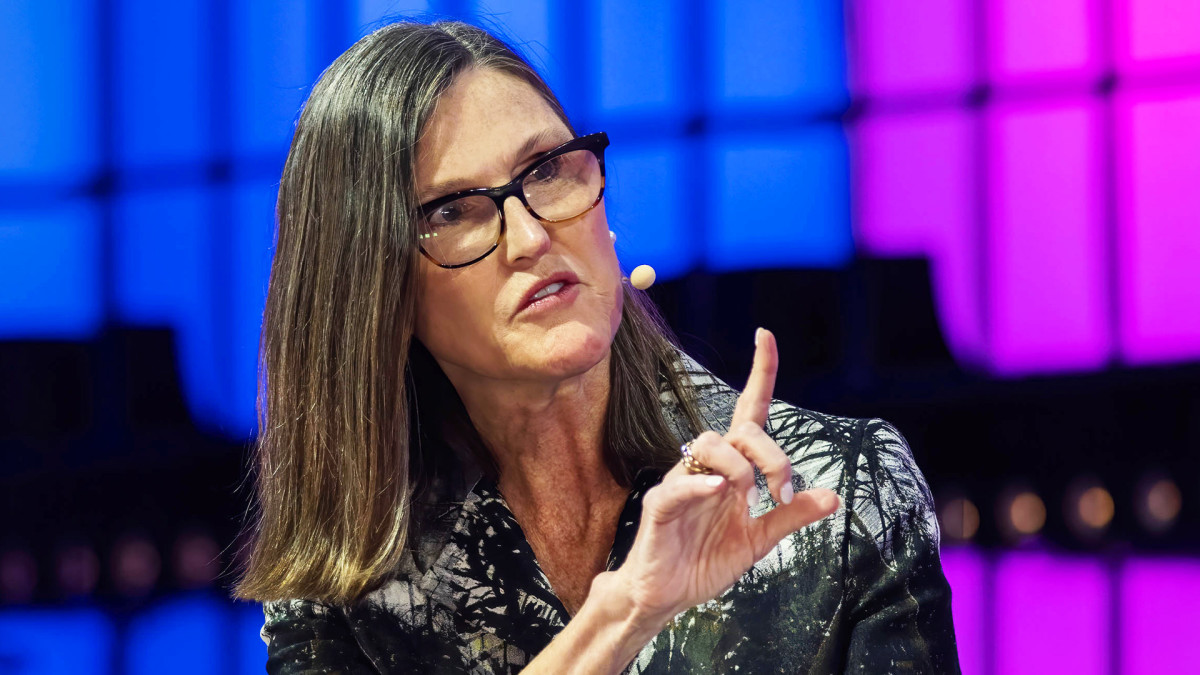
When Google GOOGL parent Alphabet reported third-quarter earnings on Oct. 26, the stock dropped around 10%, its worst day in more than three years.
The selloff — which came despite a strong earnings beat — was prompted by reduced growth at Google's Cloud division, where revenue landed $20 million short of analyst expectations.
The stock has since rebounded, closing Friday's session at $132.59, a roughly 8% increase from the stock price immediately following the earnings report.
But Ark Invest, led by the prominent asset manager Cathie Wood, doesn't see a particularly bright future for Google and Alphabet stock. The reason boils down to artificial intelligence.
Related: Why Google stock is tanking — and where it could go next
Google 'caught in innovator's dilemma': Ark exec
The tech giant, according to Brett Winton, chief futurist at Ark, is "caught in the thorns of an innovator's dilemma."
Google currently makes money by using ads to deliver users to other websites.
Large language models like ChatGPT remove this route entirely, taking the information across all websites, synthesizing it and delivering it directly to users.
Google, he said, should be winning in AI — the Mountain View, Calif., tech giant has the "best talent, the best data; they own the text prompt box that sits at the front of the consumer web."
But the company isn't shipping its AI integrations (Gemini) because, according to Winton, such an innovation would "break Google's revenue architecture" while also driving up costs.
Cathie Wood sees AI risk to Google
Cathie Wood, the CEO and investment lead at Ark, chimed in on the topic Nov. 12, saying that Google remains a "safe" AI holding in many portfolios because of its AI expertise and quantity of data.
"The problem," she said, "is that [large language models] like GPT4 are going to disintermediate and perhaps destroy Google search, the bulk of its business."
Ark's preferred AI bet is Tesla TSLA, which the firm thinks is loaded with tons of usable data and transformative tech. The basis of Ark's Tesla AI thesis is the company's effort to apply the technology to innovate self-driving cars.
Related: Cathie Wood has a blunt warning about Tesla's stock over the coming months
Munster: Google's approach is the right one
Deepwater's Gene Munster says, however, that once Google integrates Gemini into its flagship search engine, the "scale will tip back toward Google and we'll see a reacceleration."
The tech firm's cautious rollout of its AI integrations, according to Munster, is a good thing. It is spending carefully, aiming to accelerate earnings over expenses. And the company still has a unique advantage over the competition with its strong search-engine market share.
"What Google wants to do is take what you use Google for today and add onto that generative features," Munster said in October. "As they add that, you're going to go to Google more over time and there's more opportunities for them to monetize search. Big picture: the Google story is intact."
MNTN CEO Mark Douglas told TheStreet in an interview in November that Google's biggest current advantage is that it has developed consumer "muscle memory" based on its search engine.
As of June 2023, Google had a 90% share of the search-engine market, according to SimilarWeb.
But the coming proliferation of AI, Douglas said, will likely erase any technical head starts Google has on the competition and further erode that vital consumer muscle memory.
"Google has enough momentum that they could not feel this for quite a while," he said. "But the main point is nobody has a head start on this stuff."
Related: President of Ryan Reynolds' Advertising Company MNTN Explains Its New Avenue To Success
Get investment guidance from trusted portfolio managers without the management fees. Sign up for Action Alerts PLUS now.







